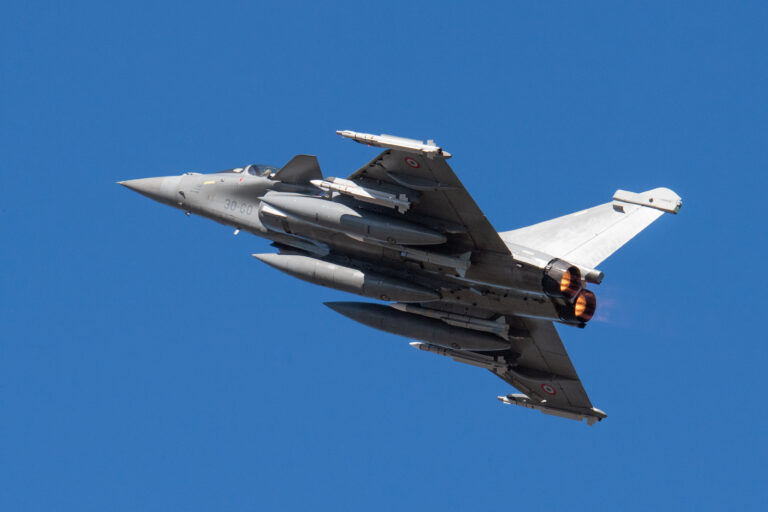Amid shifts in international fighter procurement, French aerospace giant Dassault Aviation is actively offering its Rafale multirole fighter to Portugal and Canada as an alternative to Lockheed Martin’s F-35. The proposal closely follows Portugal’s recent decision to step back from acquiring the American fighter, citing strategic shifts favoring European defense collaboration.
Dassault’s Rafale, already operational in multiple countries including France, Greece, India, Qatar, and Egypt, is renowned for its versatility, advanced avionics suite, and combat-proven record. The aircraft is also considered a potentially lower-cost option compared to the notoriously expensive F-35, making it attractive for budget-conscious governments aiming to modernize their air forces without heavy financial burdens.
For Canada, Dassault’s proposition comes at a critical juncture, as Ottawa reevaluates its earlier commitment to procure F-35s amid political debates and cost concerns. By offering the Rafale, Dassault aims to enhance interoperability within NATO while positioning itself strategically to capture market share from its American rival, highlighting the Rafale’s operational reliability and flexibility.
Portugal, evaluating European-built aircraft as part of its revised defense approach, now has the Rafale positioned as a robust candidate alongside the Eurofighter Typhoon and Saab Gripen. Dassault’s initiative reflects broader European ambitions of increasing defense autonomy and emphasizes collaborative security frameworks amid changing geopolitical landscapes.
Dassault Aviation’s proposal also strategically leverages ongoing global market dynamics, positioning the Rafale as a mature, proven alternative against a backdrop of frequent delays and operational setbacks associated with the F-35 program. Recent successes in Greece and India, combined with its deployment record in complex combat scenarios, reinforce Dassault’s arguments for the Rafale’s superior availability, operational efficiency, and comparatively simpler logistical requirements.
Additionally, by offering Canada and Portugal an alternative to American-made fighters, Dassault supports European industrial interests at a critical moment when Europe seeks greater self-reliance in defense technologies. If successful, these potential contracts would not only boost France’s strategic industry but also set a precedent for broader European participation in future multinational defense initiatives, strengthening Europe’s overall geopolitical stance.


